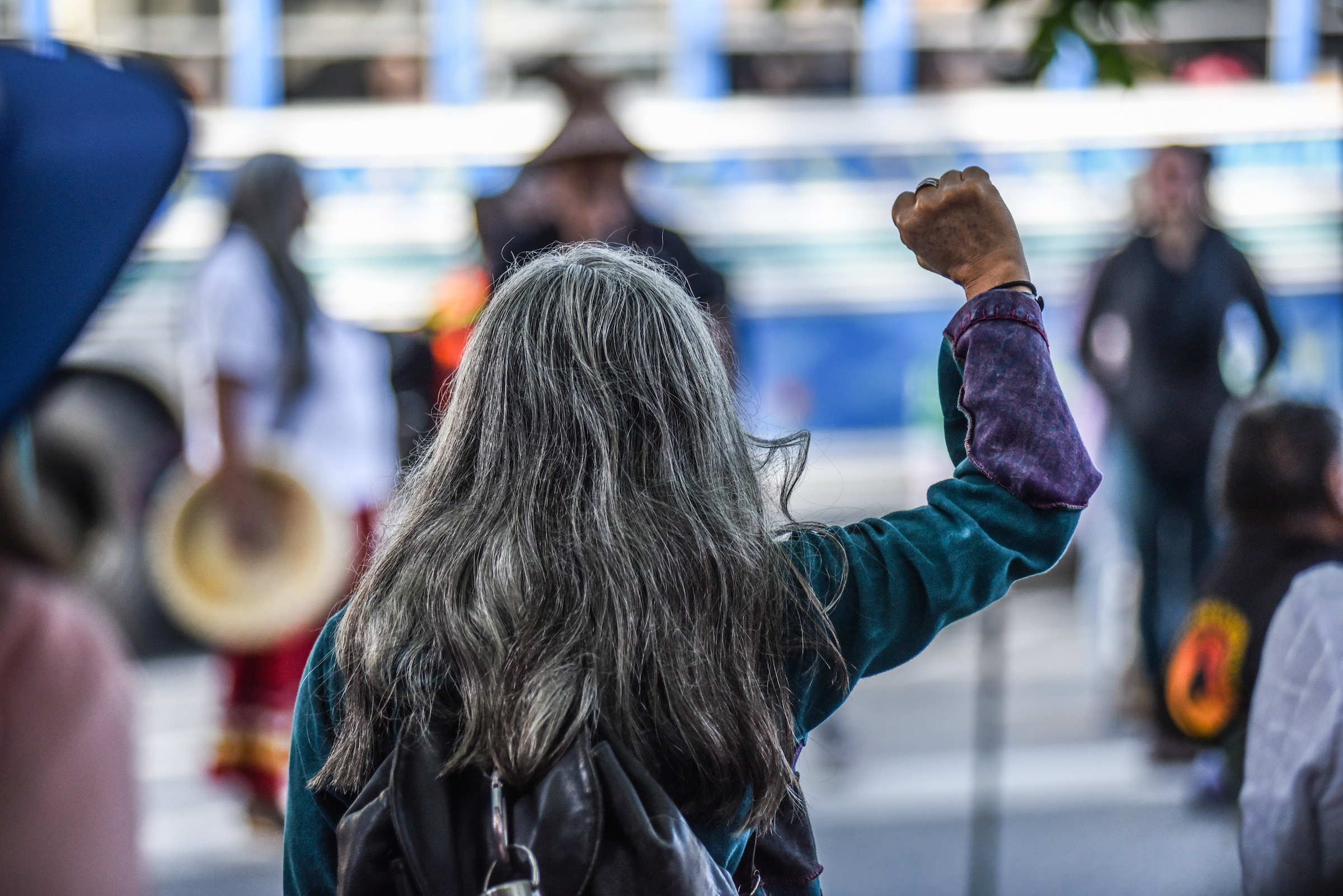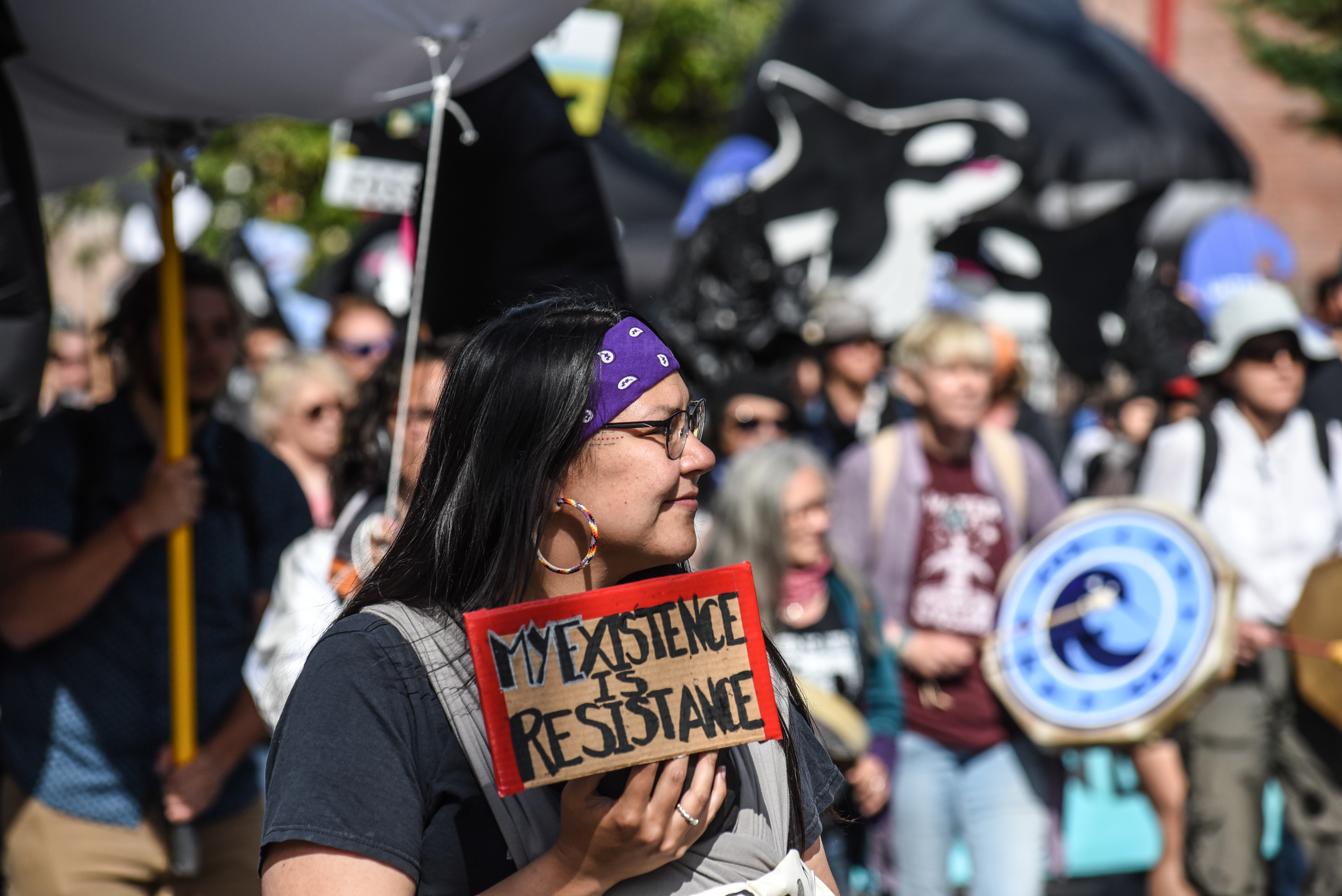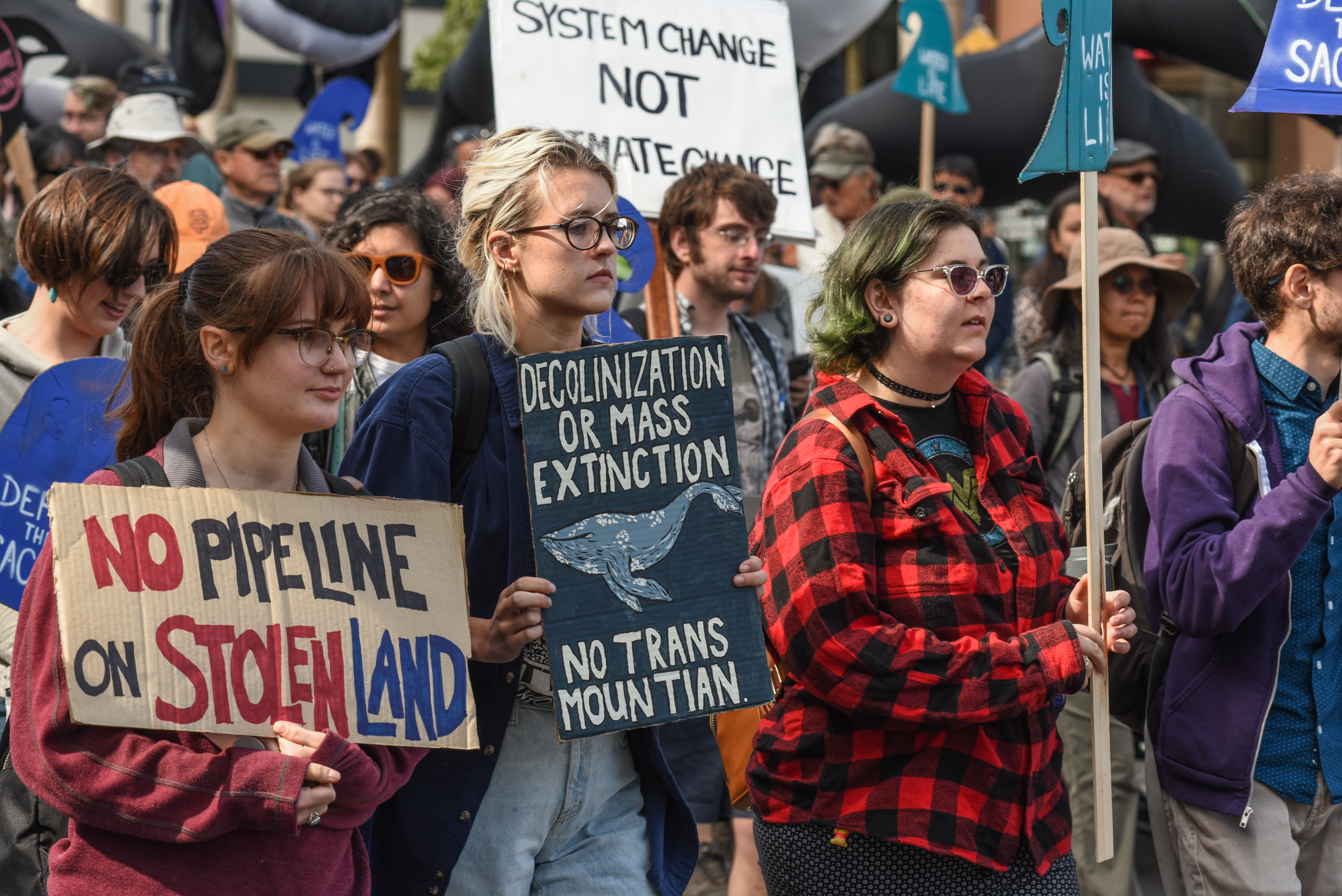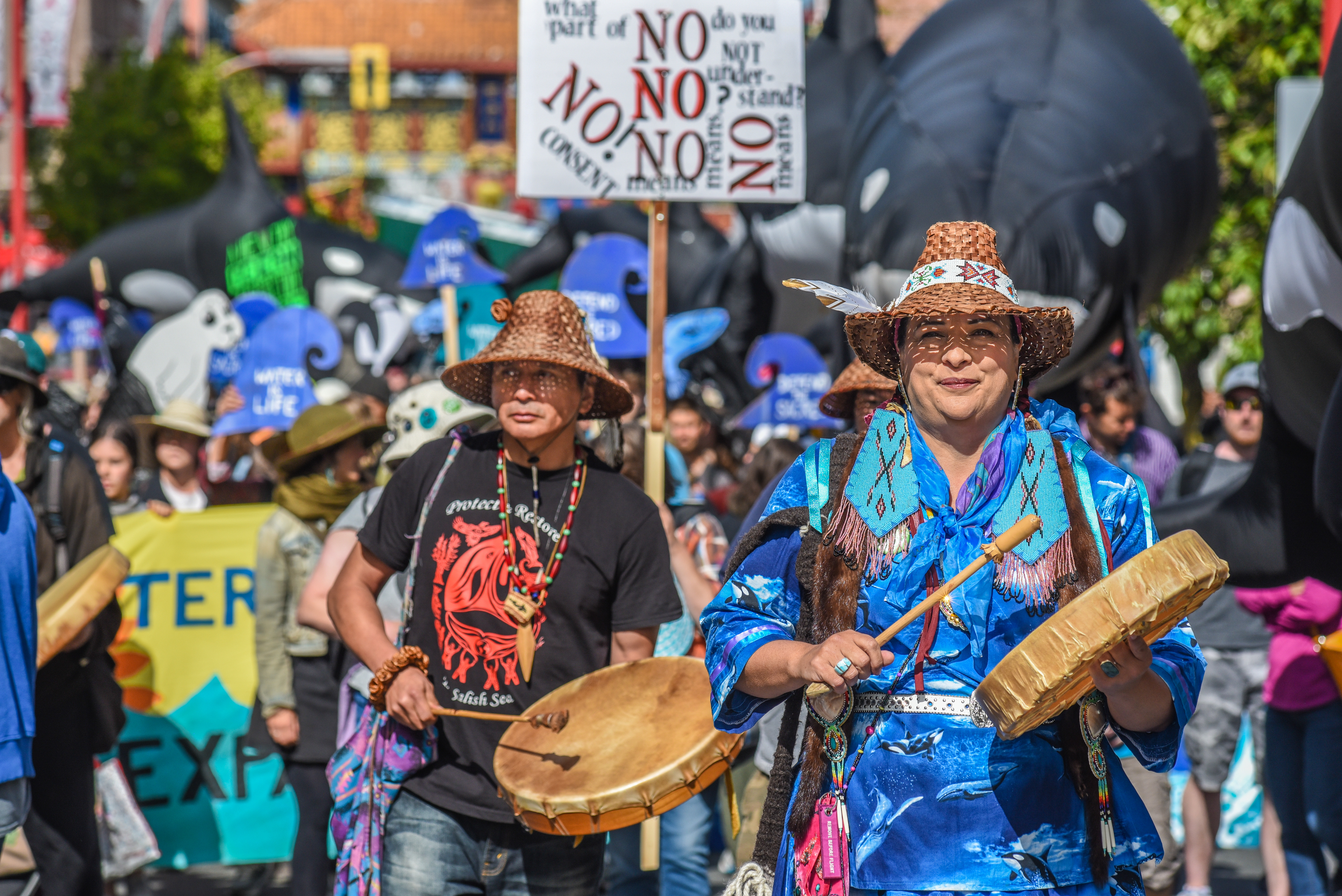Trudeau’s second approval of the project caused over 300 people to protest
On Saturday, June 22, more than 300 protestors marched over 20 kilometres in protest of the second federal approval for the Kinder Morgan Trans Mountain pipeline. Signs advertising the protest read “no pipeline, no consent,” signalling the lack of support from First Nations groups for the pipeline’s construction on unceded lands. The trek started with a gathering at Centennial Square in downtown Victoria, and ended at Island View Beach in Central Saanich.
Secwepemc Tiny House Warriors member Kanahus Manuel, T’sleil Waututh (Protect the Inlet) leader Will George, and W’SANEC water protector Paul Chiyokten Wagner led the group as they marched.
Background
This protest wasn’t the first to rally in the streets of Victoria against the Trans Mountain pipeline’s expansion. The project has been met with opposition from environmental and Indigenous groups since it was first proposed in 2012. After the most recent round of reviews, the Trudeau government reaffirmed their approval of the pipeline on June 18.
In spite of the government’s continued support of the pipeline, protestors remain persistent in their fight due to the lack of consent from Indigenous peoples for the construction of the pipeline on their unceded lands, and the detrimental impact it would have on the environment.
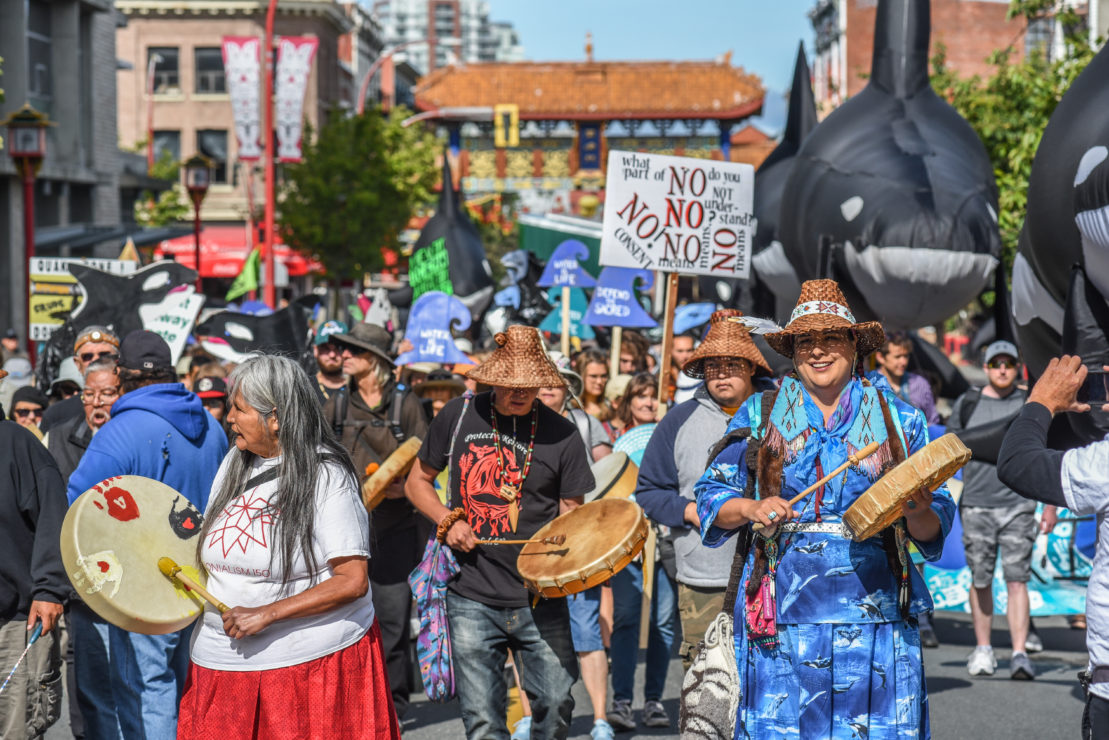
The latest protest on June 22 was hosted by a multitude of Indigenous and environmental organizations from Victoria, including Rise and Resist, Tiny House Warriors, Social Environmental Alliance, Youth for Climate Canada, Indigenous Solidarity Welfare Group, Protectors of the Salish Sea, and Extinction Rebellion of Vancouver Island.
“Oil does not belong in the 21st century. Everything that uses oil like plastic, nylon, clothes, and cars can easily be switched to being made from things that aren’t toxic sludge,” said Kris Ross, one of the protesters and an Indigenous eco-justice fundraiser. “The jobs created by the pipeline’s construction must be transferred to creating renewable infrastructure. No compromise.”
Since 1953, oil has been transported from Alberta to British Columbia via the Trans Mountain pipeline. The proposed expansion would twin the current pipeline, allowing more oil to arrive in Burnaby, B.C. and reach overseas markets.
The federal government, and particularly the National Energy Board, have been reviewing this project since 2013. The existing pipeline was bought from Kinder Morgan by the Trudeau government for $4.5 billion last year. Shovels were set to hit the ground in 2017, but the project has been met with delays.
After consulting with Indigenous groups and undergoing another National Energy Board review, the federal cabinet responded with an updated position on the pipeline. On June 18, the government approved the Trans Mountain pipeline a second time, shortly after declaring a climate emergency.
The announcement promises all of the revenue from the pipeline will be reinvested in clean energy and green technology. Indigenous peoples’ ownership of the project was vaguely suggested — Trudeau stated that it could potentially be “25 per cent, 50 per cent, or even 100 per cent.”
To the streets
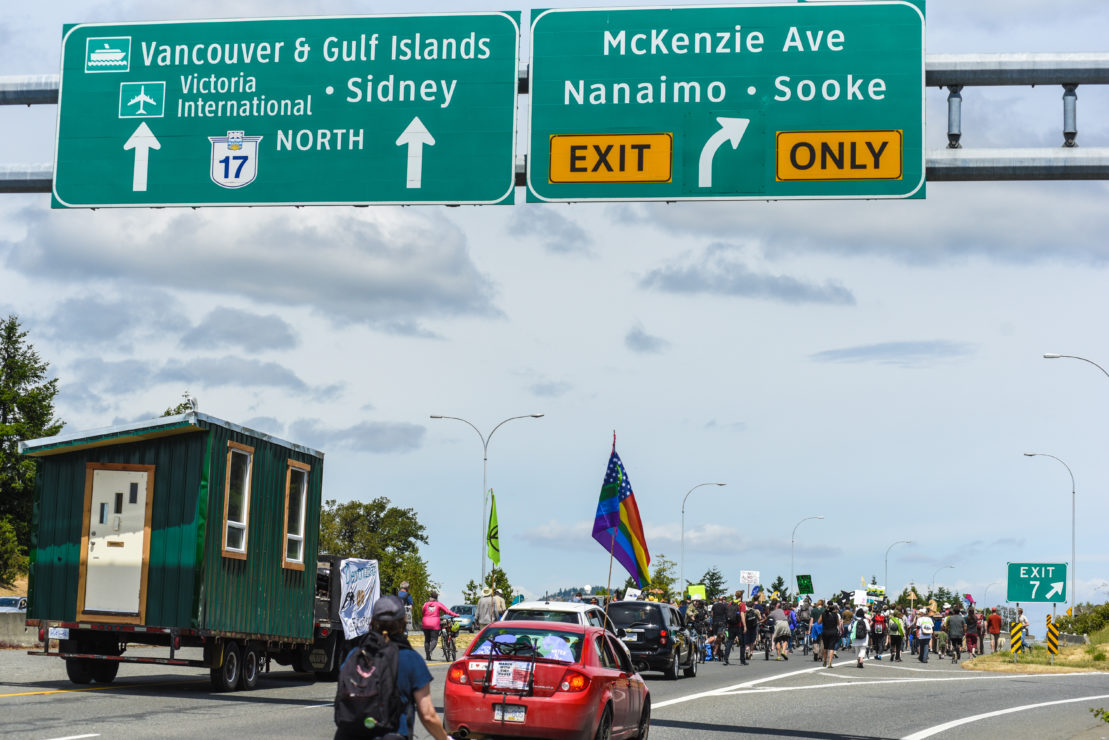
The crowd of protestors was followed by a truck hauling a tiny wooden house — one of many made by the Tiny House Warriors, a group building small homes for resistance along the Trans Mountain pipeline’s route. The house was blessed at Island View Beach after the protest, and is now headed to Secwepemc territory for use as a hub for land reclamation, resurgence, and pipeline resistance.
Seb Bonet, a settler organizer and activist with the Tiny House Warriors, said his involvement in the protest stemmed from answering a call for solidarity with Indigenous people. Bonet has been engaging in acts of resistance against the Trans Mountain Pipeline since 2012, when a representative from Kinder Morgan visited Victoria. This is the third Tiny House construction Bonet helped coordinate.
“The Grand Chief Stewart Philip has always said the fate of this pipeline, like that of colonialism, will be decided on the land,” Bonet said when asked the reason for his involvement. “We must look to the places in settler society where we have the most responsibility and create new sites of action and resistance there, whether that is university spaces, work places, or on the streets.”
The protest increased traffic, especially on the seven km lane of the Patricia Bay Highway that protesters temporarily closed. In response to complaints about the traffic, Bonet encouraged people to call Trudeau and tell him about the protest.
“I suppose if people are upset about traffic, they should check in with how upsetting it will be when most of the insects are gone, half of Lekwungen territory is underwater, and so on,” he said in an email interview with the Martlet. “That’s what this pipeline takes us closer towards.”
One of the organizers, Keith Cherry from Rise and Resist, said he was there in solidarity with Indigenous people.
“Our core message is simple: no consent means no [Trans Mountain pipeline], no matter what,” he said. “We will do whatever it takes to stop this pipeline.”
Now that the pipeline has been re-approved by Trudeau, the protest organizers are actively planning more resistance efforts; the exact events are still in the planning stages. Bonet and Cherry insisted any future action would be in solidarity with Indigenous peoples.
“This is only the beginning,” Cherry said. “We are prepared to escalate our actions as far as we need to stop this pipeline.”


